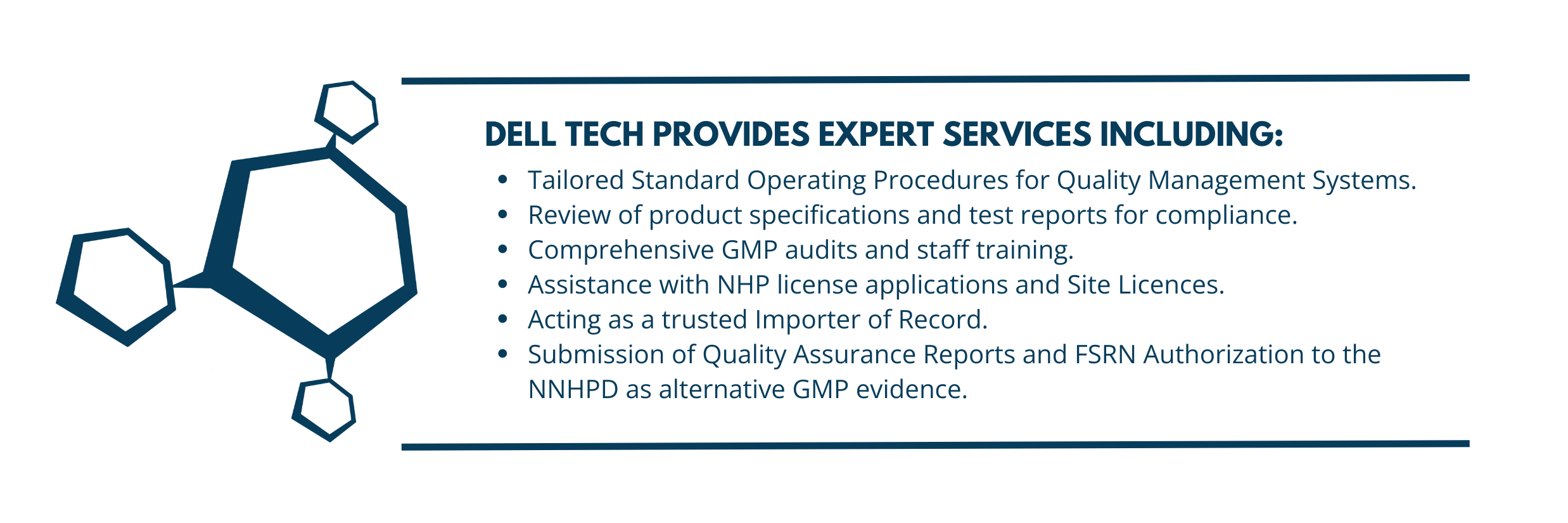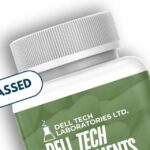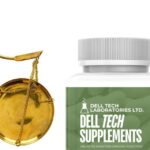Mastering NHP GMPs in Canada
By: Matthew Lai, REGULATORY SPECIALIST, email
Understanding NHP GMPs
What are NHP GMPs?
Good Manufacturing Practices (GMPs) are the set of guidelines and principles that all manufacturers should follow when ensuring the quality of their product, and Natural Health Products (NHPs) are no different when it comes to the safety and efficacy of the products meant for Canadian consumers. This includes all of the products categorized within the NHP umbrella, such as hand sanitizers and homeopathic medicines. These best practices set the standards for what the industry should expect in every site that manufacture Natural Health Products, and ensures the product’s quality, safety, and efficacy.
Since 2004, the NNHPD has been overseeing the review of applications and licenses related to Natural Health Products, and one way they judge the standards held by a company would be through the Good Manufacturing Practices they are meant to follow. At the same time, the Natural Health Product Regulations list the specific requirements that Canadian Natural Health Products must uphold, such as product specifications and any potential contamination. This means that all manufacturers, holding an appropriate site licence, intending to work with Natural Health Products must ultimately meet Canadian requirements for NHP-specific Good Manufacturing Practices, not just general GMP standards. Every site licence application submitted to Health Canada must contain examples of GMP evidence for their review, demonstrating that the site is qualified to handle Natural Health Products.
Roles and Responsibilities
Quality Assurance Person
For every site that intends to work with Natural Health Products, there must also be someone who is a designated Quality Assurance Person (QA Person). This position is vital for any site intending to import or manufacture NHPs, as it indicates to Health Canada that there is at least one person who will manage quality assurance and take care of the facility.
Each QA Person must have technical knowledge relating to the facility they are working in, and they must have the relevant training and experience to be able to address potential issues. This includes any equipment failure or replacements related to manufacturing, packaging, and labelling of NHPs, as well as other responsibilities such as Out-of-Specification Reports or CAPA Reports. In the case that a product recall happens, the QA Person must already have the procedures and forms in place to facilitate a rapid and complete recall.
For a clearer understanding of Health Canada’s expectations for QA Persons, key requirements are outlined in the Quality Assurance Report form. This form includes a series of questions aimed at gathering detailed information from relevant SOPs. In addition to that, Health Canada has guidance documents describing what they expect for each manufacturer, packager, labeller or importer of Natural Health Products.
Learn more about how GMPs are combined with Quality Assurance in our Navigating Natural Health Products (NHPs) Quality Assurance in Canada blog post.
Good Manufacturing Practices (GMPs)
Purpose and Scope
By setting a clear standard for Good Manufacturing Practices (GMPs), the industry ensures that everyone—from manufacturers to government agencies and other authorities—can effectively assess the quality of processes at any manufacturing or importation site. Standards, such as those for cleanliness and documentation, help ensure the quality and efficacy of the product, and to help indicate any issues with processes, which can be used to implement incremental improvements. This ensures that every step taken by a manufacturing or importation site—from sourcing raw material to manufacturing, packaging, labelling, and testing—meets all necessary requirements and ultimately, ensuring that the final natural health product complies with the Natural Health Products regulations.
Standard Operating Procedures (SOPs)
Development and Control
The GMP steps are outlined in the SOPs, or Standard Operating Procedures. These are procedure documents that show every step needed for a specific topic or situation, and are an important way for any third-party to evaluate the standards of particular company and site. These are essential as they give the Quality Team a clear framework to document the correct procedures for any task, such as tasks associated with an internal sanitation program, track any changes made, when they were made, and the reasoning behind those changes. SOPs provide an outline of steps taken by a company to ensure Good Manufacturing Practices.
Quality Assurance and Control
Principles and Activities
Quality Control is another important factor when ensuring the safety and efficacy of Natural Health Products, and can be considered as the steps taken to inspect and control the quality of the product through testing. Simultaneously, Quality Assurance encompasses all procedures designed to ensure that the quality control process functions effectively and that activities are documented in sufficient detail for review and audit. For instance, if personnel undergo training on proper hygienic standards, the Quality Assurance team is responsible for maintaining accurate training records to verify that the personnel are appropriately qualified.
Records and Documentation
Good Documentation Practices
Amongst the responsibilities for a QA Person includes the upkeep of a company’s Good Documentation Practices, or GDPs. Similar to how Good Manufacturing Practices are related to a company’s actions towards maintaining quality within their manufacturing procedures, Good Documentation Practices help support a QA Person’s GMP by setting standards on how recordkeeping should be done, allowing accurate and complete records to be kept for all steps of production.
GDPs can range from facility-related records on pest control and cleaning schedules, to product-specific documents such as master production documents or finished product specification sheets listing details such as intended use, or quality and identity tolerances. It should also indicate the amount of time that each kind of documentation must be kept, reflecting Health Canada’s requirements based on the type of documentation. This is especially crucial for records like those related to retained batch samples, as they are directly linked to the product lot’s expiry date. In the event of an Information Request from Health Canada, they will expect the records, demonstrating compliance, to be readily available from the site licence holder. Additionally, Health Canada expects site license holders to always have stability testing results readily available, as these establish the product’s shelf life and expiry date.
Risk Management
Identifying and Mitigating Risks
Another general principle of Good Manufacturing Practices includes “Risk Management”, which involves identifying risks that may come up during NHP production. These risks include potential contamination or adulteration of raw materials, as well as the introduction of contamination during manufacturing processes. The QA Person must recognize potential quality issues that may arise during product manufacturing. They are also tasked with conducting root cause analysis to determine the underlying causes or contributing factors to the problem.
In anticipating these potential risks, any properly-built quality risk management program should include general procedures or structured plans to address potential issues that would come up at any time. These plans should be properly documented and easily accessible should the issue come up. For instance, issues with raw ingredient supplies may lead to sourcing from a different supplier, potentially resulting in quality changes in the final product. In such cases, a robust quality risk management system will identify potential problems before they occur and ideally have strategies in place to maintain ingredient quality, such as vendor pre-validation or additional ingredient testing.
Compliance and Enforcement
Regulatory Inspections and Audits
In the near future, Health Canada intends to establish regulatory inspections and audits of sites working with Natural Health Products. Already, there have been a pilot program with inspections and audits performed on a number of sites. These include a review of the facility itself, as well as the document keeping processes in place.
Like all inspections and audits, Health Canada aims to assist industry players in meeting GMP requirements by providing feedback after each inspection or audit. Typically, these comments or concerns can be addressed through Corrective Actions and Preventative Action Reports (CAPA Reports) implemented by a designated Quality Assurance Person. However, in instances of significant non-compliance, enforcement actions by SHIELD may occur, including the suspension or cancellation of a site license.
Conclusion
Mastering NHP GMPs for Quality Assurance
Implementing GMPs is essential for any business owner or Quality Assurance Person involved with Natural Health Products, as these standards uphold the quality of NHPs marketed in Canada. With a qualified Quality Assurance Person and team overseeing facility operations and documentation processes, along with thoroughly detailed SOPs for critical procedures, any NHP manufacturer or importer can achieve compliance with Canadian GMP requirements. Fostering a strong company commitment to these standards ensures that all personnel recognize the significance of adhering to GMPs, ultimately enhancing the quality and risk management, safety, and efficacy of the final product.
How can Dell Tech support?
Unlock the potential of your Natural Health Products business with Dell Tech’s expert services! We specialize in creating tailored Standard Operating Procedures for your Quality Management System and conduct thorough reviews of product specifications, GMP audits, and essential training to ensure compliance with industry standards.
We efficiently handle NHP license applications, assist in obtaining Site Licences, and act as your trusted Importer of Record, while also submitting alternative GMP evidence to the NNHPD and supporting Drug Establishment Licence applications. Partner with Dell Tech for a streamlined path to regulatory success—contact us today to elevate your business!






